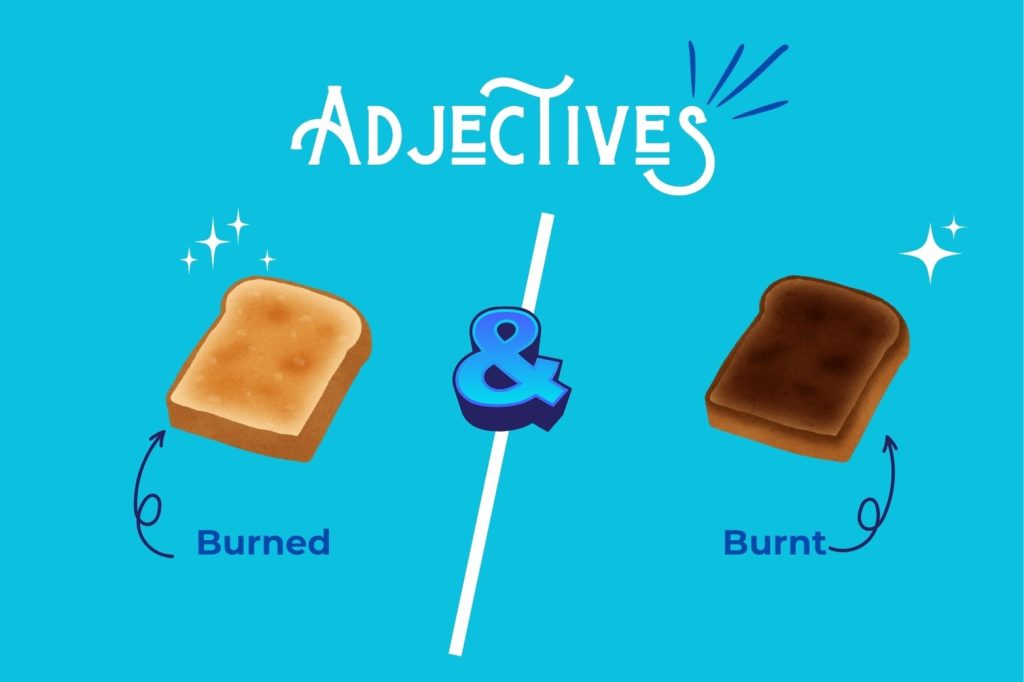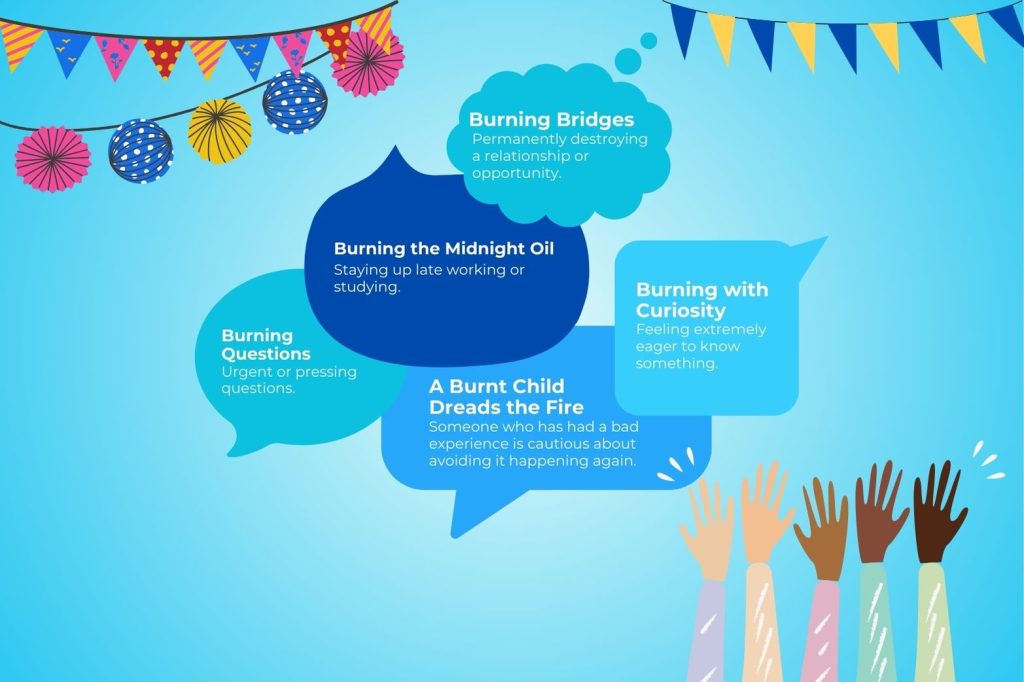This piece will look into the differences existent between”burnt” and”burned”, usage whereby they are adjectives, utilized in some common phrase and workplace expressions, e.g.”burnt out” versus”burned out.” It will also cover the olden days usage, linguistic trends and idiomatic expressions with the words. Ultimately, you will have learned clearly when to correctly use the two words.
The difference between Burned and Burnt
British English v/s American English
Burnt and burned differ most in regions’ usages: American English has cosidered burned as the preferred past tense of burn, whereas British English has references to burnt more often.
Examples:
- American English: He burned his toast this morning.
- British English: He burnt his toast this morning.
They speak the same language, even though one prefers the sound of burning over the other. Once you are done writing, you cannot consistently use these forms. For example, when writing for an American audience, use burned. If writing for a British audience, it is acceptable to use burnt.
Historical Usage and Trends
Preference for burned to burnt gained ground in American English in the 19th and 20th centuries, while it was still commonly used in American and British texts before this time. With changing American English trends, regularization of verbs became more frequent, making the use of “burned” reach standardization.
These linguistics studies argue that the term “burnt” is still commonly used in literary and poetic contexts because of its short, punchy sound, which tends to intensify the message.
Burned and Burnt as Adjectives

“Burnt” is essentially an adjective rather than “burned.” It describes something burnt in a way that shows marks or changes.
For example:
- Burnt toast – Overcooked and blackened toast.
- Burnt orange – A color shade resembling dark orange.
- Burnt rubber – Smell of tires after sudden friction.
- Burnt ends – A style of barbecued meat that has a crispy exterior.
- Burnt wood: Wood that has been charred or scorched.
- Burnt sienna – A reddish brown color very often used in art.
Using “burned” in these sentences sounds unnatural. ❌ Burned toast, ❌ burned rubber (although understandable, they aren’t the standard forms in English).
The term “burnt out” refers to a general feeling of exhaustion, particularly in work or personal spheres.
In American English, burned out is preferred.
On the other hand, Burnt out is encountered in British English but is still far less frequent.
Notable Examples:
- “I’m completely burned out from working overtime this month.” ✅ (The expression is American.)
- “She felt burnt out after years of stress.” ✅ (The phrase is British.)
This phrase expresses the overwhelming exhaustion, both mental and physical, caused by prolonged stress, usually either through work or personal challenges.
Burnout in Psychology
The term “burnout” became popularized in the ’70s by psychologist Herbert Freudenberger. It refers to the applied pressure that very severely upsets work, resulting in exhaustion, cynicism, and ineffectiveness.
Get Burned Or Get Burnt?
Another popular expression is “to get burned” or “to get burnt,” which encompasses the idea of suffering negative effects from an action-it can be real burns or metaphorical ones.
Examples:
- “He got burned while sunbathing too long.” ✅ (The American preference.)
- “She got burnt when she touched the hot pan.” ✅ (The British preference.)
Figuratively, “get burned” means to get hurt by a situation.
- “I got burned in that business deal.” ✅
- “She got burnt trusting the wrong people.” ✅
In both instances, however, burned is the more common word in American usage.
Idioms and Culture

- Burning Bridges – Permanently destroying a relationship or opportunity.
- Burning the Midnight Oil – Staying up late working or studying.
- Burning with Curiosity – Feeling extremely eager to know something.
- A Burnt Child Dreads the Fire—Someone who has had a bad experience is cautious about avoiding it happening again.
- Burning Questions – Urgent or pressing questions.
These idiomatic expressions show how violently the ‘burning’ concept saturates life beyond the mood of the physical sense.
Other to think about interesting language articles
If you enjoyed pondering the difference between “burnt” and “burned,” here are some other language matters you might enjoy:
- Learnt vs. Learned – Similar to the “burnt” and “burned,” here “learnt” is more British, while “learned” is the American choice.
- Dreamt vs. Dreamed – Another set where British English prefers “dreamt” and American English “dreamed.”
- Got vs. Gotten – “Gotten” is the general term in American English, though it lacks usage in British English.
- Gray vs. Grey – American spelling is “gray,” and British spelling is “grey.”
- Affect vs. Effect – Another oft-confused case of the verb.
In Conclusion!
The preference of “burnt” or “burned” rests mainly on the regional flavor of the language and on the grammatical status of the word:
- “Burned” is the textbook past tense and past participle in American English.
- “Burnt” is the British English preferred term, especially as an adjective.
- “Burnt” is used primarily to modify nouns like burnt toast, burnt rubber, or burnt orange, whereas “burned” refers to the act of burning.
- In workplace burnout discussions, “burned out” is more common in American English, while “burnt out” appears in British English.
- In figurative expressions like “getting burned” in a bad deal, “burned” is the preferred choice.
Ultimately, both “burned” and “burnt” are correct, but understanding their distinctions helps in proper communication, whether in writing or speaking.
Next time you’re writing or speaking, choose the form that best fits your audience and context!
LEARN MORE:
- Motivation Speech Topics: Topics That Inspired Lives Throughout Centuries
- Understanding the Difference Between “Everyone Who Has or Have”
- 50+ Suggestions to Choose For My Role Model Essay
